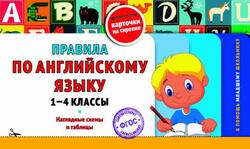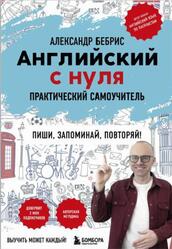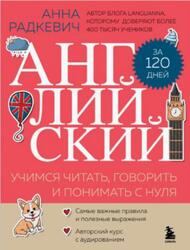I would like to thank Magali Iglesias, Director of World Languages at John Wiley & Sons, for undertaking the enormous task of preparing the second edition of Troika. With her personal encouragement and direction, and with the help of the enthusiastic staff at Wiley, this lengthy project has finally been accomplished. Lisha Perez, Assistant Editor of World Languages, has been involved in every step of the endeavor, and I am grateful to her for all the support she has provided me.
I thank all of the Russian language students at the University of Texas at San Antonio who have used multiple pilot versions of the new edition and offered me constant feedback on the process. A special recognition goes to the group of students who agreed to be filmed for the cultural video components and several still photos in Moscow and St. Petersburg.

Russian First Names.
Russian names change with a person’s age. For example, if, according to an official birth certificate, a child’s name is Александр, he may be called Сашенька (endearing form) throughout his life by his mother. When he goes to school he is called Саша (nickname) by his teachers and new friends. When friends get to know him better he will probably be known as Сашка. Children and adults sometimes use the -ка ending as a form of approval among close friends. In higher grades teachers may use his full name, Александр, or his last name only. His friends still call him Саша or, less frequently now, Сашка. When he is ready to enter the adult world, he will be called Александр Петрович (full name and patronymic, derived from his father’s name) by his colleagues, only to be called Сашенька again, occasionally, by his future wife.
The same applies to women’s names. Елена becomes Леночка in the home environment and Лена (sometimes Ленка) at school. At work she will be called Елена Петровна, and at home, Леночка, by her husband.
Бесплатно скачать электронную книгу в удобном формате, смотреть и читать:
Скачать книгу Тройка, A Communicative Approach to Russian Language, Life, and Culture, Marita Nummikoski - fileskachat.com, быстрое и бесплатное скачивание.
Скачать pdf
Ниже можно купить эту книгу, если она есть в продаже, и похожие книги по лучшей цене со скидкой с доставкой по всей России.Купить книги
Скачать - pdf - Яндекс.Диск.
Дата публикации:
Теги: учебник по английскому языку :: английский язык :: Marita Nummikoski
Смотрите также учебники, книги и учебные материалы:
Следующие учебники и книги:
 Правила и упражнения по английскому языку, 7-8 годы обучения, Гиндлина И.М., 2011 — Пособие представляет сборник упражнений по грамматике английского языка, предназначенных для учащихся 7-8 годов обучения. Материал дан в строгом соответствии с … Книги по английскому языку
Правила и упражнения по английскому языку, 7-8 годы обучения, Гиндлина И.М., 2011 — Пособие представляет сборник упражнений по грамматике английского языка, предназначенных для учащихся 7-8 годов обучения. Материал дан в строгом соответствии с … Книги по английскому языку Super minds, Student’s book 4, Puchta H., Gerngross G., Lewis-Jones P., 2012 — Super minds, Student s book 4, Puchta H., Gerngross G., Lewis-Jones P., 2012. An exciting, seven-level course that enhances young … Книги по английскому языку
Super minds, Student’s book 4, Puchta H., Gerngross G., Lewis-Jones P., 2012 — Super minds, Student s book 4, Puchta H., Gerngross G., Lewis-Jones P., 2012. An exciting, seven-level course that enhances young … Книги по английскому языку Времена года, Ванагель Т.Е., 2012 — Чем раньше мы начнём обучать ребёнка языку, тем проще для него будет обучение в дальнейшем, потому что маленькие запоминают всё … Книги по английскому языку
Времена года, Ванагель Т.Е., 2012 — Чем раньше мы начнём обучать ребёнка языку, тем проще для него будет обучение в дальнейшем, потому что маленькие запоминают всё … Книги по английскому языку Мой дом, Ванагель Т.Е., 2013 — Чем раньше мы начнём обучать ребёнка языку, тем проще для него будет обучение в дальнейшем, потому что маленькие запоминают всё … Книги по английскому языку
Мой дом, Ванагель Т.Е., 2013 — Чем раньше мы начнём обучать ребёнка языку, тем проще для него будет обучение в дальнейшем, потому что маленькие запоминают всё … Книги по английскому языку
Предыдущие статьи:
 Англійська мова для математиків, English for mathematicians, Румянцева О.А., 2015 — Навчальний посібник є сучасним, розробленим з урахуванням досвіду роботи, варіантом інтенсивного курсу англійської мови для студентів і аспірантів, що продовжують … Книги по английскому языку
Англійська мова для математиків, English for mathematicians, Румянцева О.А., 2015 — Навчальний посібник є сучасним, розробленим з урахуванням досвіду роботи, варіантом інтенсивного курсу англійської мови для студентів і аспірантів, що продовжують … Книги по английскому языку Русские фразеологизмы в картинках, Дубровин М.И., 1987 — The Russian language is highly idiomatic. The idioms, part and parcel of the language, add immensely to its richness. Their … Книги по английскому языку
Русские фразеологизмы в картинках, Дубровин М.И., 1987 — The Russian language is highly idiomatic. The idioms, part and parcel of the language, add immensely to its richness. Their … Книги по английскому языку Английский язык, 1-4 классы в схемах и таблицах, Вакуленко Н.Л., 2011 — В издании в сжатой, концентрированной форме приводится основной теоретический материал, охватывающий курс английского языка начальной школы. В пособии разбираются и … Книги по английскому языку
Английский язык, 1-4 классы в схемах и таблицах, Вакуленко Н.Л., 2011 — В издании в сжатой, концентрированной форме приводится основной теоретический материал, охватывающий курс английского языка начальной школы. В пособии разбираются и … Книги по английскому языку Правила и упражнения по английскому языку, 1-3 годы обучения, Гиндлина И.М., 2011 — Пособие представляет сборник упражнений по грамматике английского языка, предназначенных для учащихся 1-3 годов обучения. Материал дан в строгом соответствии с … Книги по английскому языку
Правила и упражнения по английскому языку, 1-3 годы обучения, Гиндлина И.М., 2011 — Пособие представляет сборник упражнений по грамматике английского языка, предназначенных для учащихся 1-3 годов обучения. Материал дан в строгом соответствии с … Книги по английскому языку




